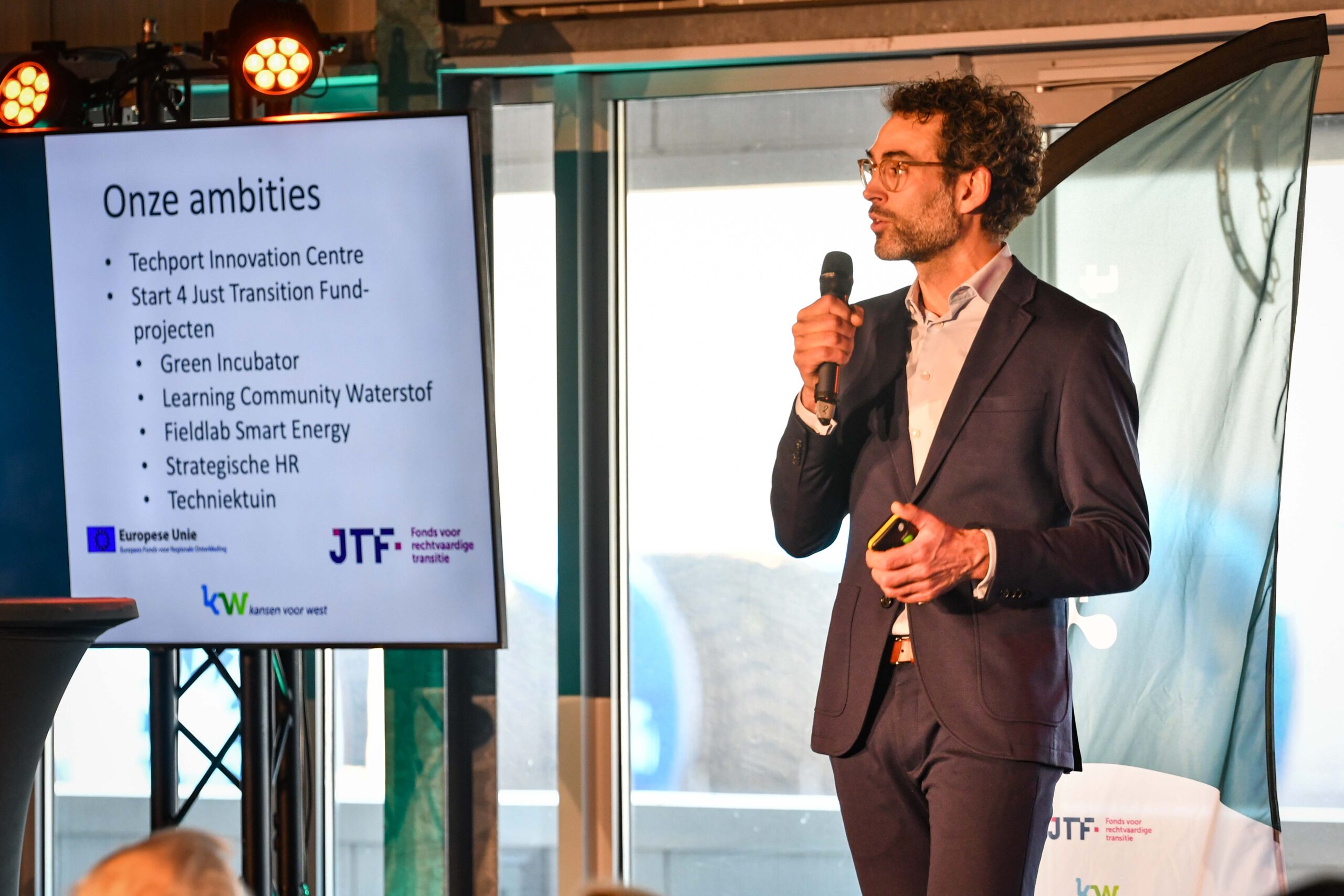After five and a half years as programme director departs Henno van Horssen at Techport. How does he look back on his work in IJmond?
What did you expect when you started this job?
"Until then, I had always worked for the government, as a driver of cooperation between education and business. Now I had to work in such a partnership myself. I was very curious to see what that would be like, was also really looking forward to it."
And, did you like it?
"I really enjoyed working at Techport. I especially liked it because Techport has always had big ambitions. At the time, the gap between those ambitions and reality was quite substantial. Nowadays, we are still ambitious, but I think we did create a very strong programme, with many partners, great projects, results and visibility."
Give some examples.
"The Techport Technology Week. Five thousand young people, parents and teachers attend that, for workshops, company visits and inspiration sessions. We facilitate that, but the interpretation comes from the companies and schools."
"Or take our programme for hybrid teachers: people from companies teaching part-time. Or the Fieldlab projects, in which large and small companies, knowledge institutes and schools work together on technological innovation. These innovations are applied in companies, but also become immediately available for education. People can just graduate on them and then start working at those companies."
You have made IJmond a learning region!
"I had a part in that, within our programme."
What was the hardest part?
"Techport was initially mainly an initiative of a few big parties. These were the founding fathers. Those are still involved and we are proud of that. But to make Techport a success, you need a much broader base of support. The whole region has to participate: primary schools, secondary schools, startups, SMEs, other big companies."
"It took us a few years, but now Techport has grown into a partnership of over 100 schools, companies and organisations. Who not only think along, but also actively seek each other out."
How did this work out?
"Well ... Mainly by setting out our role clearly. If there are no more technology classrooms or teachers, a new organisation is often created to give technology lessons. But that does not solve the problem: you take over the problem. Schools need to train people and companies need to help them do that. We make sure they start doing that. That's our part."
What else can other regions learn from Techport?
"We have put technological innovation at the centre, because that's what entrepreneurs get positive energy from! And then you automatically come to the question of how to get employees who can implement these innovations."
"Furthermore, being a foundation is an advantage. That gives us more independence. In the first years, we were heavily dependent financially on the supporting partners. Nowadays, we supplement their contributions with subsidies. In addition, we have now set up a partnership model that is open to all companies. And we are working on a Techport Innovation Centre, where companies will soon be able to establish themselves. In this way, we are also increasing our support base financially."
What can the Techport-approach mean for the greening of Dutch industry?
"Energy transitions only succeed through collaboration. Because the technology is there, but to make it usable, all kinds of partners need to align their processes. So a new ecosystem has to grow. For that, you also need enough well-trained people."
"Everyone sees that and everyone wants that. But companies and schools are still mostly set up to do their own thing. That's when you need a party like Techport."
-
Text: Aad van de Wijngaart
